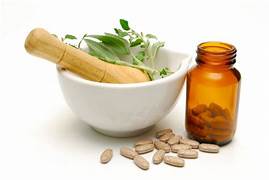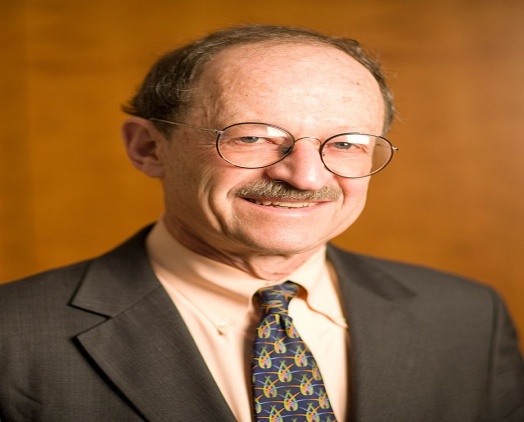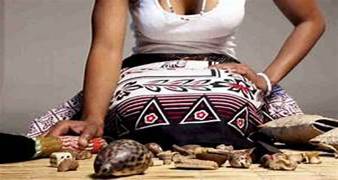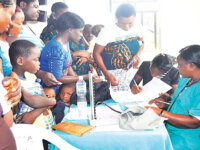By Our Correspondent
The First WHO Traditional Medicine Global Summit took place on 17 and 18 August 2023 in Gandhinagar, Gujarat, India. It was held alongside the G20 health ministerial meeting, to mobilize political commitment and evidence-based action on traditional medicine, which is a first port of call for millions of people worldwide to address their health and well-being needs.
The Global Summit was co-hosted by WHO and the Government of India, which holds the presidency of the G20 in 2023. It was a platform for all stakeholders, including traditional medicine workers, users and communities, national policymakers, international organizations, academics, private sector and civil society organizations, to share best practices and game-changing evidence, data and innovation on the contribution of traditional medicine to health and sustainable development.
For centuries, traditional and complementary medicine has been an integral resource for health in households and communities. It has been at the frontiers of medicine and science, laying the foundation for conventional medical texts. Around 40% of pharmaceutical products today have a natural product basis, and landmark drugs derive from traditional medicine, including aspirin, artemisinin and childhood cancer treatments.

New research, including on genomics and artificial intelligence are entering the field, and there are growing industries for herbal medicines, natural products, health, wellness and related travel. Currently, 170 member-states reported to WHO on the use of traditional medicine and have requested evidence and data to inform policies, standards and regulation for its safe, cost-effective and equitable use.
In response to this increased global interest and demand, WHO, with the support of the Government of India, established in March 2022 the WHO Global Centre for Traditional Medicine as a knowledge hub with a mission to catalyze ancient wisdom and modern science for the health and well-being of people and the planet.
The WHO Traditional Medicine Centre scales up WHO’s existing capacity in traditional medicine and supplements the core WHO functions of governance, norms and country support carried out across the six regional offices and headquarters. The Centre focuses on partnership, evidence, data, biodiversity and innovation to optimize the contribution of traditional medicine to global health, universal health coverage and sustainable development. It is also guided by respect for local heritages, resources and rights. A cross-regional expert panel advised on the Summit’s theme, format, topics and issues to address.
Traditional medicine could boost healthcare “access gaps”, but was of value only if used “appropriately, effectively, and above all, safely based on the latest scientific evidence”, Tedros warned earlier.

“We need to face a very important real-life fact that traditional medicines are very widely used,” Nobel laureate and Chair of WHO Science Council, Harold Varmus, told the summit via video link. “It is important to understand what ingredients are actually in traditional medicines, why they work in some cases… and importantly, we need to understand and identify which traditional medicines don’t work”.
The summit, set to become a regular event, followed the opening last year of a WHO Global Centre for Traditional Medicine, also in India’s Gujarat state. While traditional medicines are widely used in some parts of the world, they also face fierce criticism. The UN health agency defines traditional medicine as the knowledge, skills and practices used over time to maintain health and prevent, diagnose and treat physical and mental illness. But many traditional treatments have no proven scientific value. Conservationists say the industry drives a rampant trade in endangered animals — including tigers, rhinos and pangolins — and threatens the existence of entire species.
Use of homemade remedies soared during the Covid-19 pandemic, including a green herbal drink based on Artemisia that was promoted by Madagascar’s President as a cure. The plant has a proven efficacy in malaria treatment, but its use to combat Covid was widely scorned by many doctors.
In China, traditional medicine has a distinguished history, but top European medical bodies have previously demanded it be subject to the same regulatory oversight as conventional medical methods. “Advancing science on traditional medicine should be held to the same rigorous standards as in other fields of health,” WHO research chief, John Reeder, said in a statement.
Of the WHO’s 194 member states, 170 acknowledged their use of traditional and complementary medicine since 2018, but only 124 reported having laws or regulations for the use of herbal medicines — while only half had a national policy on such methods and medicines.
“Natural doesn’t always mean safe, and centuries of use are not a guarantee of efficacy; therefore, scientific method and process must be applied to provide the rigorous evidence required,” the WHO said.
About 40 percent of approved pharmaceutical products currently in use derive from a “natural product basis”, according to the WHO, citing “landmark drugs” that derive from traditional medicine, including aspirin, drawing on formulations using willow tree bark.




